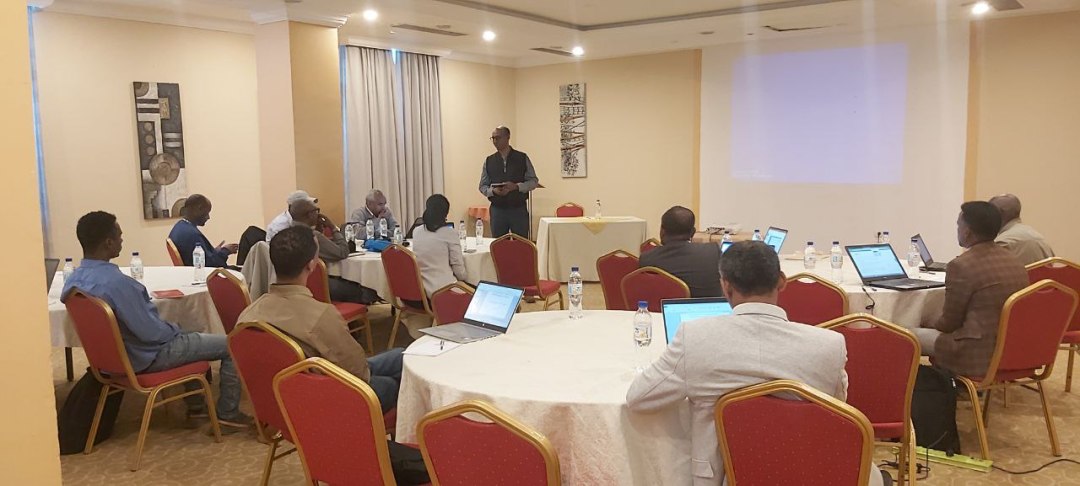National Food Safety Technical Working Group writeshops have commenced in Addis Ababa on November 3, 2023, at the Nexus International Hotel. This collaborative effort aims to develop comprehensive documents on national poultry guidelines as well as Good Agricultural Practices and Good Handling Practices for sesame. Experts from various key national food safety entities, including government ministries, authorities, institutes, non-governmental organizations, and the private sector, have been convened for this significant writeshop.
In his opening speech, Dr. Dawit Alemu, SWR Ethiopia country representative and RAISE-FS project manager, highlights the importance of collaboration, knowledge sharing, and evidence-based decision-making in addressing complex issues like food safety. He has also stressed the significance of both formal and informal interactions among professionals in this field to achieve these objectives. Dr. Dawit expressed his hope that this writeshop will result in tangible outcomes that will make a real difference in improving food safety in Ethiopia.

The primary objective of these writeshops is to facilitate the creation of essential guidelines and practices that will enhance food safety standards in the poultry and sesame sectors. By bringing together experts from diverse backgrounds and sectors, this initiative aims to ensure a holistic approach towards addressing food safety challenges in Ethiopia.
The development of national poultry biosecurity and product safety guidelines is of utmost importance, as it will serve as a comprehensive framework for the poultry industry. These guidelines will encompass various aspects such as animal health, biosecurity measures, and disease control strategies. By establishing standardized practices, the poultry sector will be able to enhance its productivity, quality, and overall safety.
Similarly, the focus on developing Good Agricultural Practices and Good Handling Practices for sesame is crucial. Sesame is a significant agricultural commodity in Ethiopia, and ensuring its safety from farm to fork is paramount. The guideline documents will outline best practices for sesame cultivation, harvesting, storage, transportation, traceability, labeling, and certification. By adhering to these practices, stakeholders in the sesame sector can safeguard the quality and integrity of their products while also meeting international food safety standards.
The participation of experts from government ministries, authorities, institutes, non-governmental organizations, and the private sector demonstrates the collective commitment towards ensuring food safety in Ethiopia. This collaborative effort will enable the exchange of knowledge, experiences, and expertise among stakeholders, fostering a comprehensive understanding of the challenges and opportunities in the food safety landscape.
In conclusion, the outcomes of these writing workshop will serve as valuable resources for all stakeholders involved in the food safety sector. The documents produced will provide guidance on best practices, offer recommendations for policy development, and facilitate capacity-building initiatives. Ultimately, they will contribute to strengthening Ethiopia’s food safety system and promoting the country’s agricultural products in both domestic and international markets.

